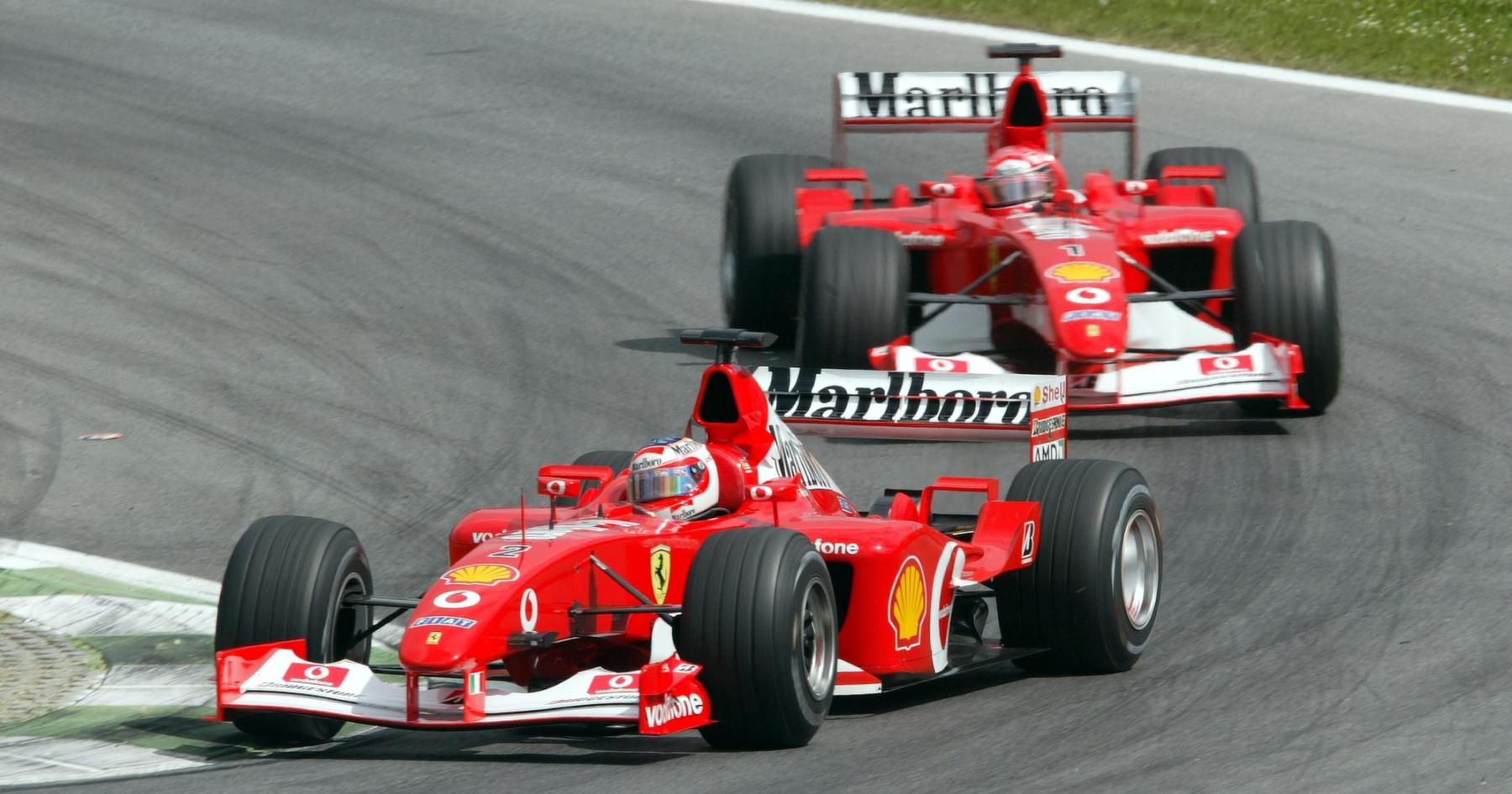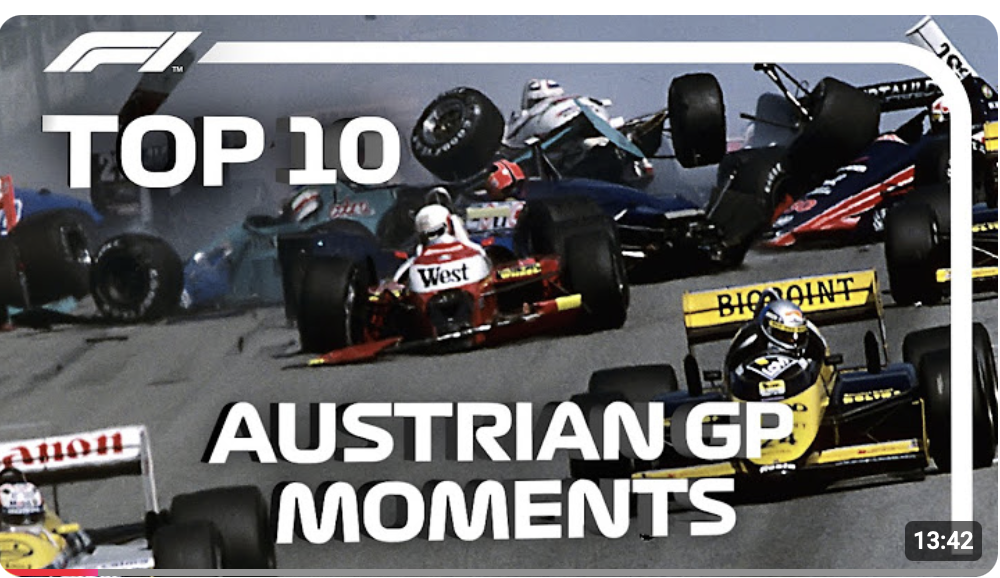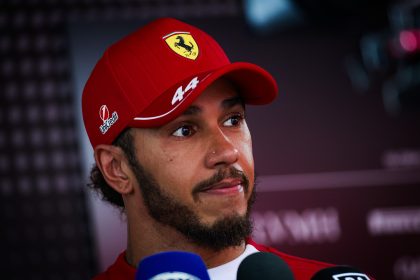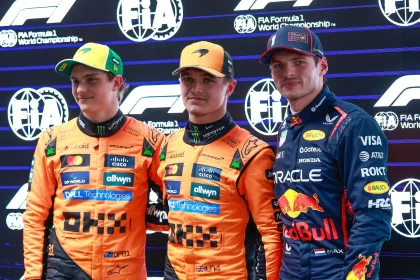If you want to understand the uneasy marriage of power and PR in Formula 1, you need only watch the final straight of the 2002 Austrian Grand Prix. There, in front of 81,000 fans and millions more at home, Rubens Barrichello slowed his Ferrari—having led every meaningful lap—just meters from the finish line, allowing Michael Schumacher to snatch victory. It was the moment when the world saw, in real time, the machinery of corporate sport grind the soul of competition into dust. And it was the day Formula 1’s image, so carefully polished by PR, collided headlong with the raw, unvarnished reality of power.
The Anatomy of a Betrayal
Let’s set the scene. It’s May 12, 2002, at the A1-Ring in Spielberg, Austria. Ferrari are at the height of their powers, Michael Schumacher already well on his way to a fifth world title, and Rubens Barrichello—forever the “number two”—has just outqualified his illustrious teammate and is driving the race of his life. For 71 laps, Barrichello is untouchable. Schumacher, for once, is the chaser.
But Formula 1, as any historian will tell you, is not a fairy tale. It is a business, and in 2002, Ferrari’s business was winning championships for Schumacher. With a healthy lead in both titles, the team’s paranoia about “lost points” bordered on the pathological. And so, as the laps ticked down, the radio crackled with increasingly desperate messages from the Ferrari pit wall.
Rubens, let Michael pass for the championship. Please confirm you understood this message.
Jean Todt, Ferrari Team Principal
Barrichello, to his credit, resisted. He had been here before—ordered to move aside in Austria the previous year, and subtly managed ever since he joined Ferrari. But this time, the order was explicit, and the threat behind it unmistakable. As Barrichello later recalled, It was eight laps of war… I cannot tell you what they said, but it was a form of threat that made me think about re-thinking my life, because the great joy for me was driving. Motorsport Magazine
The Final Corner: When the World Watched
Barrichello’s act of compliance was as theatrical as it was heartbreaking. He waited until the very last possible moment—just 100 meters from the line—before lifting off the throttle and letting Schumacher through. The margin? 0.182 seconds. The symbolism? Infinite.
The crowd erupted—not in celebration, but in fury. Boos rained down on the podium. Schumacher, visibly uncomfortable, tried to haul Barrichello onto the top step and handed him the winner’s trophy, a gesture as awkward as it was futile. The damage was done.
Fans could not comprehend what had just happened. How could Ferrari make clearly the better driver over the weekend, give up the race victory to hand it on a plate to his team-mate, who had not done the job that was required of him? It was unsportsmanlike.
Motorsport Magazine
If you want to relive the moment in all its uncomfortable glory, you can watch the finish here: Barrichello lets Schumacher through on the final lap to win Austria 2002
When PR Met Power: The Fallout
Ferrari’s PR machine, usually so adept at spinning triumph from controversy, was caught flat-footed. The team was summoned by the FIA, not for the team orders themselves (which, astonishingly, were still legal), but for violating the sanctity of the podium ceremony. The fine? A cool $1 million. The real cost? Immeasurable.
The media, for once, spoke with one voice. This was not strategy; this was manipulation. The fans, already suspicious of Ferrari’s “number one” culture, now had proof. The sport’s credibility was in tatters.
The incident was widely condemned by fans, media, and former drivers. It was seen as a manipulation of the sporting contest and damaging to the integrity of Formula 1.
F1 Historical Records
The Rulebook Rewritten
The backlash was so severe that the FIA, never an organization to act hastily, moved with rare speed. From 2003, team orders that interfered with race results were banned. The regulation was clear: Team orders which interfere with a race result are prohibited.
Of course, Formula 1 teams are nothing if not creative. The ban led to a golden age of coded messages—Fernando is faster than you, anyone?—and by 2011, the rule was quietly dropped as unenforceable. Today, team orders are legal again, provided teams don’t bring the sport into disrepute. But the ghost of Austria 2002 still haunts every radio call and every suspiciously easy overtake.
The Number Two Curse
Barrichello’s fate was not unique. Formula 1 is littered with the broken dreams of “number two” drivers: Eddie Irvine, Felipe Massa, Valtteri Bottas, Mark Webber. But none suffered so public a humiliation as Barrichello in Austria.
Being a number two driver is a tag no Formula 1 racer wants to be associated with. Their job? To help their faster team-mate finish as high as possible, while hoovering up any additional points for the constructors’ championship. No matter the cost to their own ambitions, no matter how demoralising it could be.
Motorsport Magazine
Barrichello himself would later reveal that the team orders began from his very first race at Ferrari, and that his media appearances were tightly controlled. There are papers that come with, ‘you can say this, you cannot say that.’ You know, people are just watching. But then every time I sat on the car, I had the pleasure and the gratitude of driving a really good car, and that paid off. Total Motorsport
The Historical Parallels: Not the First, Not the Last
Team orders are as old as the sport itself. In 1951, Luigi Fagioli was forced to hand his car to Juan Manuel Fangio. In 1964, Lorenzo Bandini moved over for John Surtees, handing him the title. In 2010, Felipe Massa was told, Fernando is faster than you. In 2018, Valtteri Bottas was ordered to let Lewis Hamilton through in Russia.
But Austria 2002 was different. It was not just the act, but the manner—the timing, the visibility, the utter disregard for the audience’s intelligence—that made it a watershed moment.
The Numbers Don’t Lie
Let’s look at the cold, hard facts of that infamous day:
| Position | Driver | Team | Time/Gap |
|---|---|---|---|
| 1 | Michael Schumacher | Ferrari | 1:27:52.078 |
| 2 | Rubens Barrichello | Ferrari | +0.182 |
| 3 | Juan Pablo Montoya | Williams | +18.354 |
| 4 | Ralf Schumacher | Williams | +19.756 |
| 5 | David Coulthard | McLaren | +20.691 |
Barrichello led 71 laps. Schumacher led one: the one that mattered.
The Legacy: A Sport Changed Forever
Austria 2002 forced Formula 1 to confront its own contradictions. Is it a team sport or an individual contest? Is the spectacle more important than the result? Can you legislate against cynicism?
The answer, as always in Formula 1, is “it depends.” Team orders are back, albeit with a veneer of subtlety. But the memory of Barrichello’s sacrifice lingers—a reminder that, sometimes, the most important battles are not fought on the track, but in the boardroom and the press room.
Let’s wait for the third race before calling anyone a legend.
Pedro, The Historian of the Grid
Waste a bit more time
- Austria ’02: How Ferrari team orders controversy embarrassed F1
- Controversy Swirls Around Team Orders and Formula 1
- Rubens Barrichello reveals controlling Ferrari team
- Barrichello lets Schumacher through on the final lap to win Austria 2002 (Facebook Video)












